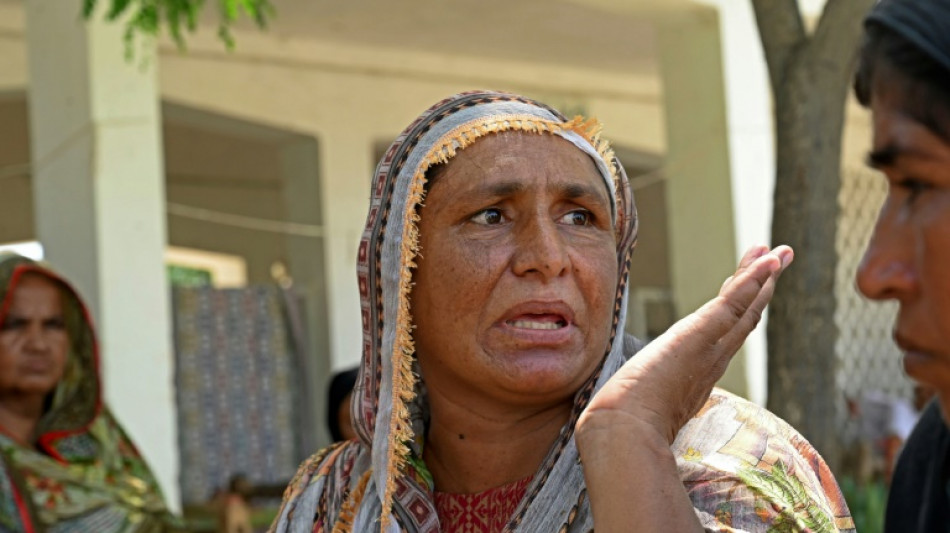
-
 Where things stand in the US-China trade war
Where things stand in the US-China trade war
-
De Bruyne to leave Man City at end of the season

-
 Youthful Matildas provide spark in friendly win over South Korea
Youthful Matildas provide spark in friendly win over South Korea
-
Stocks, oil extend rout as China retaliates over Trump tariffs

-
 De Bruyne says he will leave Man City at end of season
De Bruyne says he will leave Man City at end of season
-
UK spy agency MI5 reveals fruity secrets in new show

-
 Leverkusen's Wirtz to return 'next week', says Alonso
Leverkusen's Wirtz to return 'next week', says Alonso
-
England bowler Stone to miss most of India Test series

-
 Taiwan earmarks $2.7 bn to help industries hit by US tariffs
Taiwan earmarks $2.7 bn to help industries hit by US tariffs
-
Rat earns world record for sniffing landmines in Cambodia
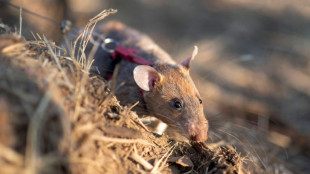
-
 Elton John says new album 'freshest' since 1970s
Elton John says new album 'freshest' since 1970s
-
EU announces 'new era' in relations with Central Asia

-
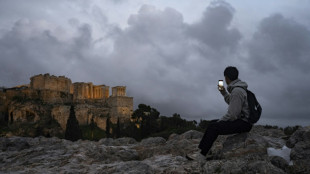 Greece nixes Acropolis shoot for 'Poor Things' director
Greece nixes Acropolis shoot for 'Poor Things' director
-
'Historic moment': South Koreans react to Yoon's dismissal
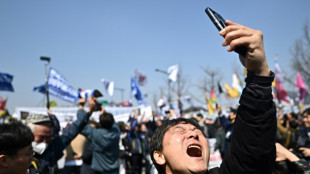
-
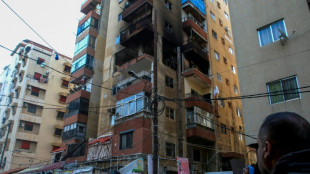 Israel kills Hamas commander in Lebanon strike
Israel kills Hamas commander in Lebanon strike
-
Trump unveils first $5 million 'gold card' visa

-
 Crashes, fires as Piastri fastest in chaotic second Japan GP practice
Crashes, fires as Piastri fastest in chaotic second Japan GP practice
-
India and Bangladesh leaders meet for first time since revolution
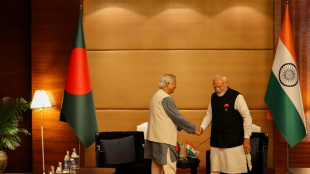
-
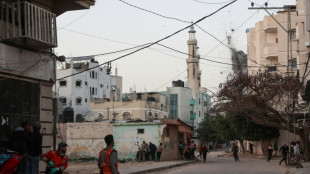 Israel expands ground offensive in Gaza
Israel expands ground offensive in Gaza
-
Families of Duterte drug war victims demand probe into online threats

-
 Stocks extend global rout after Trump's shock tariff blitz
Stocks extend global rout after Trump's shock tariff blitz
-
Kolkata's Iyer more bothered about impact than price tag

-
 BP chairman to step down after energy strategy reset
BP chairman to step down after energy strategy reset
-
Indian patriotic movie 'icon' Manoj Kumar dies aged 87

-
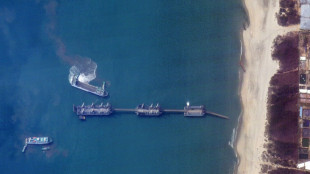 China floats battle barges in Taiwan invasion plans
China floats battle barges in Taiwan invasion plans
-
McLaren's Piastri fastest in chaotic second Japanese GP practice

-
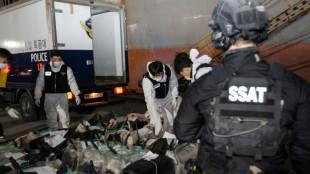 South Korea seize two tons of cocaine in largest-ever drug bust
South Korea seize two tons of cocaine in largest-ever drug bust
-
Pacific nations perplexed, worried by Trump tariffs

-
 The race to save the Amazon's bushy-bearded monkeys
The race to save the Amazon's bushy-bearded monkeys
-
TikTok must find non-Chinese owner by Saturday to avert US ban

-
 Trump tariffs to test resiliency of US consumers
Trump tariffs to test resiliency of US consumers
-
Clamping down on 'forever chemicals'

-
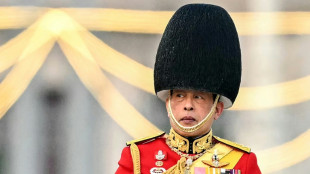 Prominent US academic facing royal insult charge in Thailand
Prominent US academic facing royal insult charge in Thailand
-
Yana, a 130,000-year-old baby mammoth, goes under the scalpel
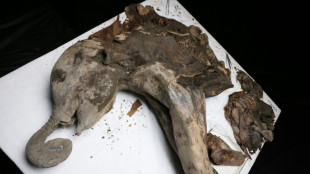
-
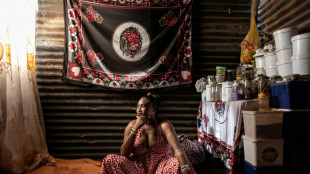 'Don't want to die': Lesotho HIV patients look to traditional medicine
'Don't want to die': Lesotho HIV patients look to traditional medicine
-
Curry scores 37 as Warriors outgun LeBron's Lakers

-
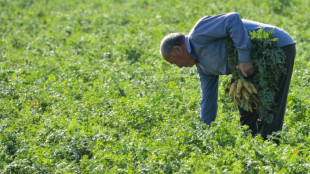 Crops under threat as surprise March heatwave hits Central Asia: study
Crops under threat as surprise March heatwave hits Central Asia: study
-
Japan PM says Trump tariffs a 'national crisis'

-
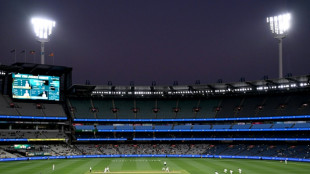 Security 'breakdown' allows armed men into Melbourne's MCG
Security 'breakdown' allows armed men into Melbourne's MCG
-
Norris fastest in Japan GP first practice, Tsunoda sixth on Red Bull debut

-
 Albon says Thailand taking bid for F1 race 'very seriously'
Albon says Thailand taking bid for F1 race 'very seriously'
-
'It's gone': conservation science in Thailand's burning forest
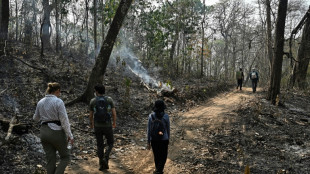
-
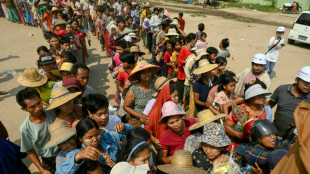 Protest as quake-hit Myanmar junta chief joins Bangkok summit
Protest as quake-hit Myanmar junta chief joins Bangkok summit
-
EU leaders push for influence at Central Asia summit
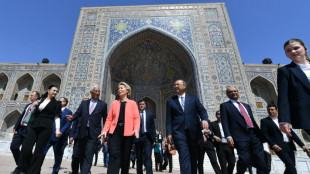
-
 Asian stocks extend global rout after Trump's shock tariff blitz
Asian stocks extend global rout after Trump's shock tariff blitz
-
Lewandowski, Mbappe duel fuelling tight La Liga title race

-
 South Korea court upholds President Yoon's impeachment, strips him of office
South Korea court upholds President Yoon's impeachment, strips him of office
-
Liverpool march towards title as Man City face Man Utd

-
 Finland's colossal bomb shelters a model for jittery Europe
Finland's colossal bomb shelters a model for jittery Europe
-
Athletes frustrated as France mulls Muslim headscarf ban in sport


Shame, misery as Pakistan floods leave many without toilets
The stench of decay hangs over a makeshift camp in Pakistan's south, where hundreds of locals have sought shelter from the devastating monsoon floods that have put nearly a third of the country under water.
In Punjab province, dozens of tents are perched in the area around a small rural railway station -- the only dry land on a horizon of water, reached only by a sliver of road.
The odour is a heady mix of rotting vegetation from drowned crops, leftover food scraps and garbage -- as well as the accumulated excrement of the hundreds of people and livestock gathered there.
"There is no place for showering or going to the bathroom," said Zebunnisa Bibi, forced to flee with her family two weeks ago when floodwater inundated her village.
Similar tent camps have mushroomed across the south and west of the country. The worst flooding in the country's history has covered an area the size of the United Kingdom and affected 33 million people -- one in seven Pakistanis.
A lack of functioning toilets at these camps is one of the biggest issues -- posing a health hazard for all, but misery in particular for women and girls.
Rural Pakistan is home to extremely conservative Muslim communities, and many displaced women are having to live in close proximity to men who aren't relatives for the first time in their lives.
"We used to live behind the veil, but God has removed that for us," said Zebunnisa, referring to the strict segregation between the genders that is practised in rural Pakistan.
- 'Deeply ashamed' -
She said she was "deeply ashamed" at having to relieve herself in the open -- especially after she caught a man watching her as she lowered her shalwar kameez behind a tree.
Shameen Bibi expressed similar sentiments.
"Where can I send my daughters alone? When we squat to relieve ourselves, we get scared that some man might come."
Swarms of flies and mosquitoes add to the misery, creating an environment ripe for a breakout of disease and infection.
Some women have stopped venturing into the floodwater to relieve themselves after many developed rashes.
Ehsan Ayaz, a volunteer doctor who arrived at the campsite in Fazilpur as AFP visited, said the lack of toilets was "the main reason" for the rise in cases of skin infections and stomach flu he treated.
Shameen and her daughters now drink as little water as possible during the day, preferring to spend hours in discomfort rather than be forced to relieve themselves where they can be seen.
When the sun sets and darkness descends on the camp, the women search for a secluded spot away from flickering campfires.
They take turns to keep watch and warn away any encroaching men.
"I don't know what we can even do if someone does decide to come and take advantage of us," said Shameen.
There is also another threat.
At night, said Shameen, "snakes and scorpions come out from the water".
J.Williams--AMWN


